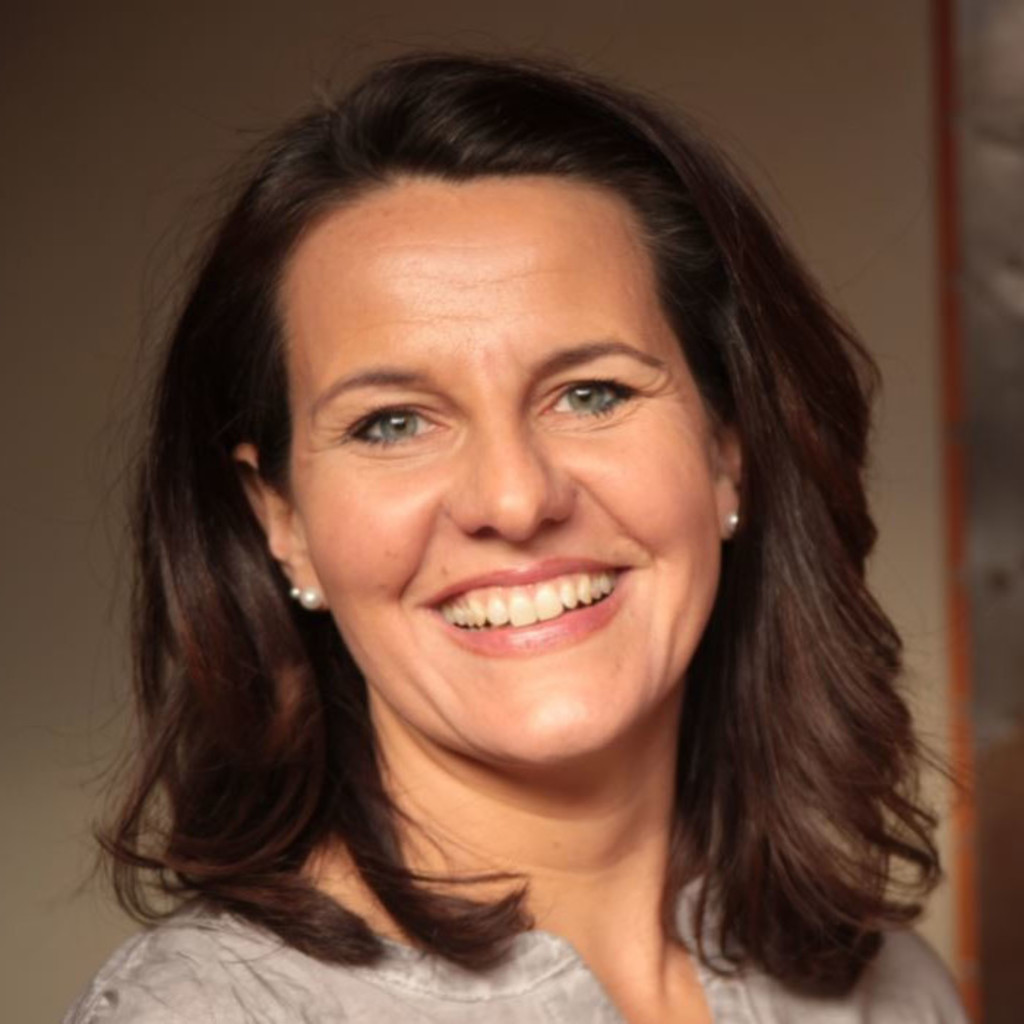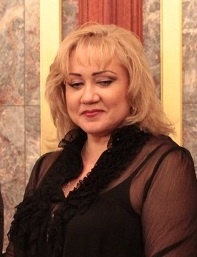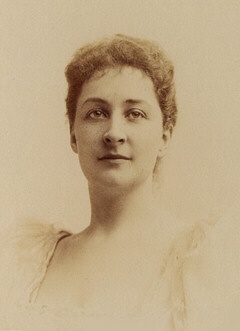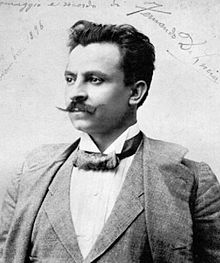
Andrea Gruber |
Andrea Gruber
Star Andrea Gruber lit up not today. But at the last festival in the Arena di Verona shone with a special brilliance. The American soprano had a special, personal success with the public in the difficult role of Abigail in Verdi’s Nabucco. Critics argued that after Gena Dimitrova, no soprano of similar strength, technical equipment and expressiveness appeared in this opera. Journalist Gianni Villani talks to Andrea Gruber.
You are an American, but your last name speaks of German origin…
My father is Austrian. In 1939 he left Austria and fled to the United States. I studied at the Manhattan School in my hometown of New York. At the age of 24, she made her debut in The Force of Destiny at the Scottish Opera*, she sang eleven performances. My second encounter with the stage was at home, at the Metropolitan Opera, where I sang Elisabeth in Don Carlos. These two operas, plus Un ballo in maschera, in which my partner was Luciano Pavarotti, “catapulted” me to the stages of the most prestigious theaters in the world: Vienna, London, Berlin, Munich, Barcelona. At the Met, I also sang in Wagner’s “Death of the Gods”, which was recorded by Deutsche Grammophon. The German repertoire played an important role in my growth. I sang in Lohengrin, Tannhäuser, Valkyrie. Recently, the role of Chrysothemis in Richard Strauss’ Elektra has entered my repertoire.
And when did you start singing in Nabucco?
In 1999, at the San Francisco Opera. Today I can say with complete sincerity that my career is starting. My technique is strong and I don’t feel uncomfortable in any role. Before, I was too young and inexperienced, especially in the Verdi repertoire, which I am now beginning to love. I owe a lot to Ruth Falcon, my teacher for twelve years. She is an amazing woman, with great faith in the arts and very experienced. She came to Verona to listen to me.
How to approach such a difficult role as Abigail?
I don’t want to sound arrogant, but this is an easy role for me. Such a statement may seem strange. I’m not saying this to be considered a great singer. It’s just that my technique is perfect for this role. I often sang in “Aida”, “Force of Destiny”, “Il Trovatore”, “Masquerade Ball”, but these operas are not so simple. I no longer perform at Don Carlos or at Simone Boccanegre. These roles are too lyrical for me. Sometimes I turn to them because I want to exercise or just to have fun. Soon I will sing my first “Turandot” in Japan. Then I will have debuts in Rustic Honour, Western Girl and Macbeth.
What other operas attract you?
I really like Italian operas: I find them perfect, including the veristic ones. When you have strong technique, singing is not dangerous; but one should never resort to shouting. Therefore, it is very important to have a “head”, and you need to think about the next role. Singing is also a mental phenomenon. Maybe in ten years I will be able to sing all three of Wagner’s Brunhilde and Isolde.
From a theatrical point of view, the role of Abigail is also no joke …
This is a very versatile character, more interesting than is commonly believed. This is still an immature, infantile woman who follows her own whims and does not find true feelings in either Ishmael or Nabucco: the former “takes away” Fenen from her, and the latter makes the discovery that he is not her father. She has no choice but to turn all the forces of her soul to the conquest of power. I always thought that this role would be truer if it was portrayed with more simplicity and humanity.
What does the next festival in the Arena di Verona offer you?
Maybe “Turandot” and again “Nabucco”. Let’s see. This huge space makes you think about the history of the Arena, about everything that happened here from antiquity to the present day. This is truly international musical theatre. I met colleagues here whom I had not met for many years: from this point of view, Verona is even more international than New York, the city where I live.
Interview with Andrea Gruber published in L’Arena newspaper. Translation from Italian by Irina Sorokina.
Note: * The singer was born in 1965. The Scottish Opera debut, which she mentions in an interview, took place in 1990. In 1993, she made her first appearance at the Vienna Opera as Aida, and in the same season she sang Aida at the Berlin Staatsoper. On the stage of Covent Garden, her debut took place in 1996, all in the same Aida.
REFERENCE:
Born and raised on the Upper West Side, Andrea was the son of university professors, history teachers, and attended a prestigious private school. Andrea proved to be a talented (albeit unorganized) flutist, and at the age of 16 she began singing and was soon accepted into the Manhattan School of Music, and after graduation she got into the prestigious internship program at the Met. Her huge, beautiful voice, the ease with which she succeeded in high notes, acting temperament – all this was noticed, and the singer was offered the first role. First, a small one, in Wagner’s Der Ring des Nibelungen, and then, in 1990, the main one, in Verdi’s Un ballo in maschera. Her partner was Luciano Pavarotti.
But all this happened against the backdrop of serious drug addiction. Her voice was weakened by the drugs, she overstressed the ligaments, which became inflamed and swollen. Then that fateful performance in Aida happened, when she simply could not hit the right note. The general manager of the Metropolitan Opera, Joseph Wolpe, no longer wants her presence in the theater.
Andrea received separate roles in Europe. In America, only the Seattle Opera continued to believe in her – in a few years she sang three roles there. In 1996, in Vienna, she ended up in a hospital – it was necessary to urgently remove a blood clot on her leg. This was followed by a rehab clinic in Minnesota, where drug addiction began to get rid of.
But with recovery came weight gain. And although she sang no worse than before, she – already because of too much weight – was not invited to the Vienna Opera and was removed from her performance at the Salzburg Festival. She can’t forget it. But in 1999, when she sang in San Francisco, she was heard by the manager of the Metropolitan Opera, a man with a wonderful surname Friend (“Friend”), who knew her even before she was fired from the Met. He invited her to sing in Nabucco in 2001.
In the same 2001, the singer decided on a stomach bypass, an operation that more and more obese people are doing now.
Now 140 pounds thinner and drug-free, she’s once again walking the Met’s corridors, where she has engagements through at least 2008.





